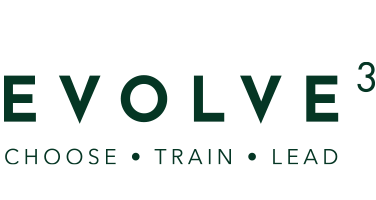
04 Jan Why you should never stop recruiting
Think you’ve got enough staff? Think again. In the ever-evolving realm of Australia’s hospitality industry, marked by a steady flow of new businesses and a tight labor market, the necessity for perpetual staff recruitment should not be overlooked. Every owner and senior manager I interact with during my training workshops and consulting meetings reports the challenges of the skills shortage, new competition, constraints on hiring overseas staff, the issue of underperforming staff.
The Australian Hospitality Surge:
Australia’s hospitality sector has ridden the wave of a robust economy and an increasingly discerning consumer base over the last 25 years. With a surge in domestic and international tourism, establishments are mushrooming across the nation. The resulting competitive environment requires businesses to constantly seek top-notch talent to ensure exceptional customer experiences.
Skill Shortages – A Perennial Challenge:
Despite the industry’s remarkable growth, Australia’s hospitality sector contends with an enduring skills shortage, especially in specialised roles like chefs, baristas, and seasoned front-of-house staff. This gap between the demand for skilled professionals and the available talent pool underscores the urgency for a proactive approach to recruitment. It is not merely about filling vacancies but actively pursuing top-tier talent to maintain a competitive edge and uphold service standards.
Low Unemployment, Elevated Competition:
Australia’s commendably low unemployment rate, indicative of a robust economy, presents a dual challenge for the hospitality industry. The scarcity of job seekers intensifies competition among businesses vying for the limited pool of available talent. Continuous staff recruitment becomes imperative for identifying, attracting, and retaining the best candidates, ensuring establishments consistently deliver high-quality services.
New Hospitality Ventures:
Australia’s hospitality industry is witnessing a renaissance, with a multitude of new businesses entering the market annually. This surge amplifies the challenges associated with recruitment. The growing number of establishments escalates the demand for skilled staff, heightening competition for top talent. To stay ahead, businesses must adopt proactive and ongoing recruitment strategies aligned with their growth trajectory and evolving staffing needs.
Constraints on Overseas Staff Employment:
Traditionally, Australian hospitality businesses have turned to overseas recruitment to address skill shortages. However, changes in immigration policies and global circumstances have imposed restrictions on hiring international staff. Visa constraints, compounded by pandemic-related logistical challenges, make it more arduous for businesses to rely solely on global recruitment to fill pivotal roles. Hence, there is a pressing need to focus on cultivating local talent through continuous recruitment and investing in training programs.
Addressing Underperforming Staff:
Holding onto employees who do not meet the required standards can impede the overall success of an establishment. Continuous recruitment strategies should not only be about filling gaps but also about identifying, addressing, and rectifying underperformance. This proactive approach ensures that businesses maintain a high-performance culture and consistently deliver exceptional service.
Some Strategies for Continuous Recruitment and Performance Improvement:
Building a Talent Pipeline:
Actively engaging potential candidates, even in the absence of immediate openings, helps businesses build relationships and create a pool of pre-qualified candidates. Simultaneously, it allows for the identification and nurturing of high-performing individuals.
Investing in Training and Development:
To address both skill shortages and underperformance, hospitality businesses should invest in comprehensive training and development programs. This not only enhances the skills of existing staff but also attracts individuals eager to learn and contribute positively to the team. Large hospitality businesses factor this into their budgets and invest around 1.5% to 2% of their annual turnover in staff development.
Collaborating with Educational Institutions:
Establishing partnerships with local culinary and hospitality schools is a strategic move to identify emerging talent. Additionally, businesses can create internship and apprenticeship programs to foster a continuous influx of well-trained and motivated staff.
Creating a Positive Employer Brand:
A positive employer brand is crucial for attracting and retaining top talent. Simultaneously, it can set performance expectations, creating a culture that encourages high standards and identifies and addresses underperformance promptly.
The takeaway:
In Australia’s flourishing hospitality industry, the need for continuous staff recruitment is not just a strategic choice but a fundamental requirement for success. By considering challenges like skills shortages, increased competition, constraints on hiring overseas staff, and the crucial issue of underperformance, businesses can develop comprehensive recruitment strategies. These strategies should not only focus on acquiring talent but also on fostering a high-performance culture that ensures sustained success in a highly competitive landscape.



